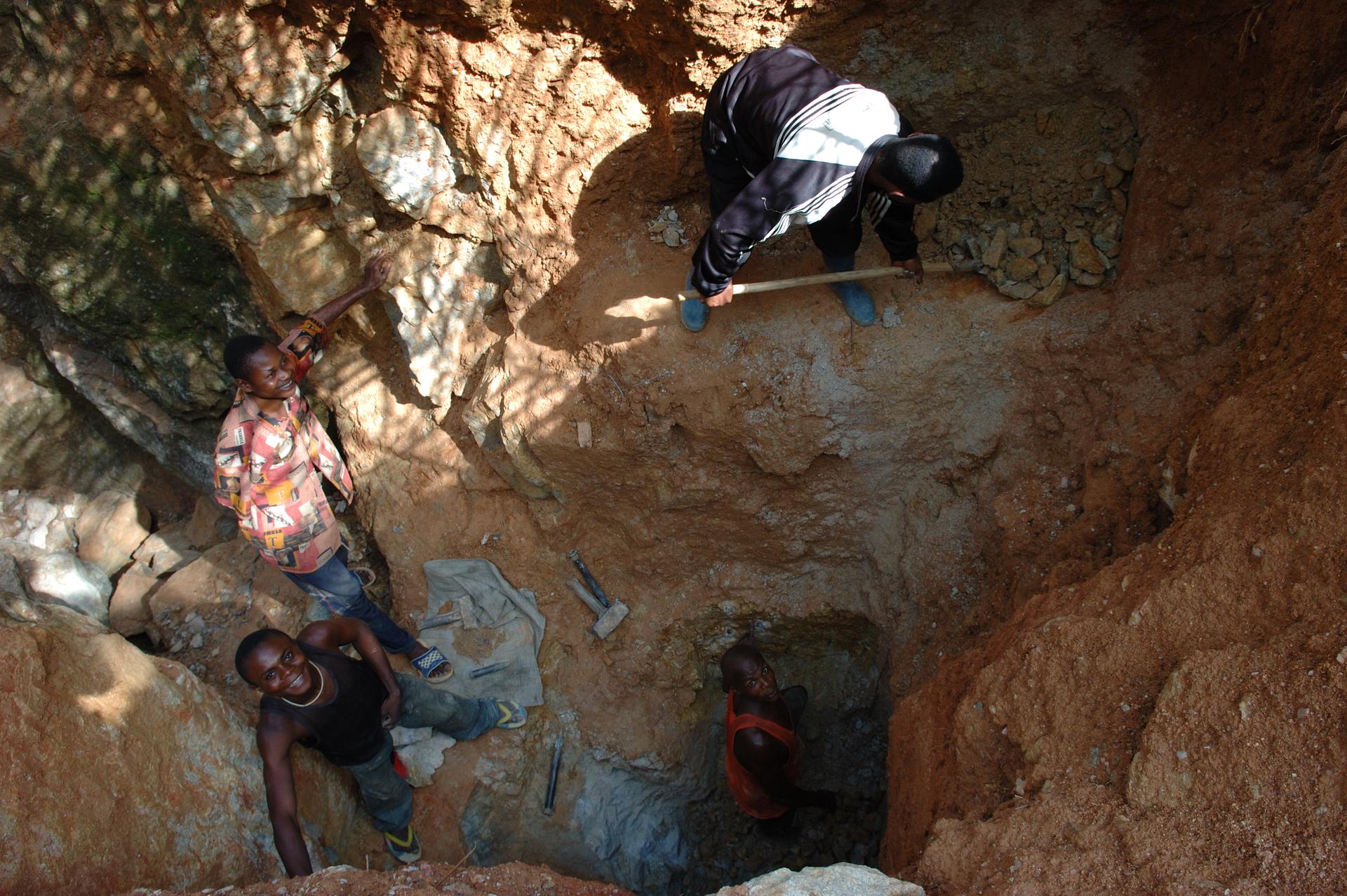Catholic bishops outraged by Congress’ repeal of an anti-corruption measure that could support child labor
A gold mine in the Democratic Republic of Congo is shown here. Extractive industries are notorious for corruption and for practices that harm local communities. In the Democratic Republic of Congo, child labor is still common and the profits stay largely in corporate and government hands.
President Donald Trump's repeal of an anti-corruption rule that required extractive industries — like mining, oil drilling and quarrying — to disclose payments to foreign governments has caused dismay among people who advocate for the poor and for transparency in government.
The repealed rule was written under the Dodd-Frank Wall Street Reform and Consumer Protection Act. The newly empowered Republican Congress overturned it through the Congressional Review Act, a legislative tactic used successfully just once since 1996, when it was first created by Newt Gingrich. The repeal of the Securities and Exchange Commission rule was the first bill signed by Trump when he took office.
Now, not only environmental and anti-corruption groups are outraged. So is the Catholic Church.
Oscar Cantú, the Bishop of Las Cruces, New Mexico, is chairman of the Committee on International Justice and Peace of the US Conference of Catholic Bishops. Part of his job is to visit developing countries to see what effect extractive industries have on local communities. One of the places he has visited is the Democratic Republic of the Congo.
“The Congo is a very naturally rich country, and one of the issues, among many, is corruption in the local government at all levels,” Bishop Cantú says. “The difficulty there is that, with these extractives — whether it's coal or diamonds or gold or whatever — sadly, only the government and [certain] personalities are benefiting from the richness of the land. So, these local communities that are very rich in mineral resources don’t have paved roads, they don’t have basic access to clean water. That is the difficulty with a lack of transparency.”
Bishop Cantú says his concern is not political, but moral. He says governments need to serve the people, especially the poor, and they are his main concern.
“I’m essentially a pastor,” he says, with a laugh. “I’m much more comfortable preaching to my flock than sitting down in a boardroom with senators or representatives. But what gives me courage to do that are the faces of the people I meet who are suffering the ravages of poverty.”
According to the transparency advocacy group Global Witness, the US already lags behind other major economies, such as Canada, Norway and the European Union, in requiring rigorous transparency from extractive companies. Now that this rule has been overturned, the SEC must craft another provision, but, according to the Congressional Review Act, the new rule can’t be “substantially similar to the previous one.”
For Bishop Cantú, strong legislation is important to help protect the poor and vulnerable. “I’m sure that this one particular legislation wouldn’t solve all of the issues,” he says, “but it is one piece — because laws not only have a practical effect, they also enshrine the values of society. And one value is simply that those entrusted with authority in society be responsible to the people that they represent.”
This article is based on an interview that aired on PRI’s Living on Earth with Steve Curwood.
